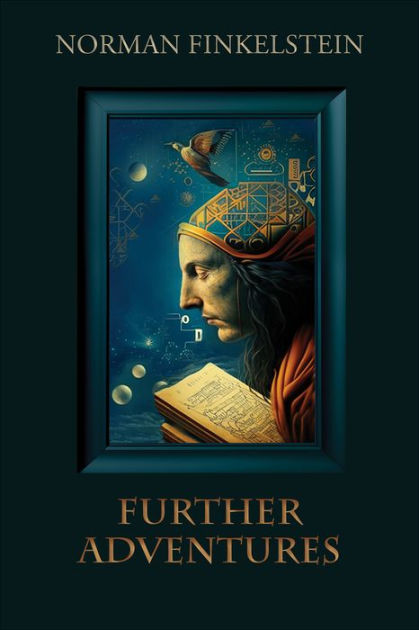Note: If you wish to receive, via e-mail, (1) my weekly newsletter or (2) daily copies of these posts, notify me at rrbates1951@gmail.com and indicate which you would like. I promise not to share it with anyone.
Friday
I’ve been reading the two most recent poetry collections of Norman Finkelstein, my best friend in grad school and a remarkable poet and scholar. This past Sunday I shared my theories about the connection between literature and spirituality, and Norman has been exploring a version of that topic for quite some time. I am particularly entranced those poems in which he imagines himself as “Pascal Wanderlust,” a poet wanderer seeking to understand his quest.

Norman’s Wanderlust poems appear both in In a Broken Star (2021) and Further Adventures (2023). The poems are each 12 lines long and appear in groups of 12. Norman has named his hero (or anti-hero) after the line of flowered boots made by Dr. Martens (see picture), but the name also conjures up the brilliant 17th century French mathematician, scientist, and thinker Blaise Pascal, famous for (among other things) his reflections on the nature of God. In an essay appended to Further Adventures, Norman cites Pascal’s observation, “All of humanity’s problems stem from man’s inability to sit quietly in a room alone,” which Norman jokes makes “Pascal Wanderlust” an oxymoron. Except it’s not, of course, because one can wander in the mind as well as in space, which is what Norman does in his poetic sequence.
Norman’s previous book, From the Files of the Immanent Foundation, chooses an institute or think tank or something (he’s deliberately vague) to explore the nature of poetry. Here, by contrast, he has found an avatar for himself, one who wanders through classic poetry, the Kabbala, various mystics, graphic novels, Freudian psychology, science fiction and fantasy, philosophy, film, and other fields to understand what drives him and the nature of his project.
I share two poems, the first of the Pascal Wanderlust poems (from In a Broken Star) and the self-introduction in Further Adventures (where Norman imagines himself as “the Arch-Mage of Nonsense”).
In our first view of Wanderlust, he is wearing his flowered Doc Martens, along with a mist-grey cloak reminiscent of Gandalf. It is spring and he is following the earth’s invisible energy line, propelled by visions of “palaces lately dreamed” and “that Shining Land lying just ahead, mirage at mountainous horizon.” The breezes that “promise music, scented sensuous turnings of air and vapor, rustling sounds,” remind me of Caliban’s vision in The Tempest:
Be not afeard; the isle is full of noises,
Sounds and sweet airs, that give delight and hurt not.
Sometimes a thousand twangling instruments
Will hum about mine ears, and sometime voices
That, if I then had waked after long sleep,
Will make me sleep again: and then, in dreaming,
The clouds methought would open and show riches
Ready to drop upon me that, when I waked,
I cried to dream again.
Add to that Prospero’s vision in the same play of “cloud-capp’d towers,” “gorgeous palaces” and “solemn temples”—”we are such stuff as dreams are made on,” the magician says—and you see why Wanderlust is so eager to set out on his journey:
Pascal Wanderlust, flowered Docs
and mist-grey cloak, follows the ley line
leading down the lane. The last patches
of snow are melting, and Pascal side-
steps puddles on the way to palaces
lately dreamed. Breezes promise music,
scented sensuous turnings of air
and vapor, rustling sounds. Pascal
pulls back a hood grown moist
in greening weather. That Shining Land
lying just ahead, mirage at mountainous
horizon: what does Pascal know of destinations?
In the other poem, we glimpse many of the elements that the alchemist poet mixes together in his poetry workshop. Some are elevated, some look like they’ve been lifted from old science fiction movies and comic books.
“Adam Kadmon,” which I had to look up, is a figure from Jewish mysticism. Neither male nor female, Kadmon is the original human, made up of pure spirit and pure potential, from which Adam and Eve were fashioned (“the ego in pieces”). And indeed Wanderlust, when he plugs into his Adam Kadmon soul, is sometimes a man, sometimes a woman.
Notice how Norman is not afraid to make fun of himself: not only does he admit that he might be turning out nonsense, but he has a sense of humor about his enterprise. Although he seeks to touch base with his higher self, he does so with imperfect instruments, including narration, which refuses to cohere as it breaks into pieces (like the ego). In other words, don’t expect a straightforward story.
All of which is great fun. The Arch-Mage’s laughter, Norman tells us, echoes through space.
The Arch-Mage of Nonsense
is at work in his study
shaping an ego
out of old books of poems
bits of gossip
found on the internet
and vague memories
that were once his own.
The ego is dispersed
across page after page
decanted stuff
from alembics and test tubes
and vacuum chambers
retrieved from space stations
long abandoned
orbiting the moon.
Like a comic book born
of ennui and sorrow
pain and irony
and impossible magic
the ego and its dreamwork
are laid out in poems
panel next to panel
demanding interpretation.
Panel next to panel
in their inane contiguity
defying continuity
yet insisting upon narration
the ego in pieces
like Adam Kadmon
and the laughter of the Arch-Mage
echoing through space.
Added note: Copies of In a Broken Star and Further Adventures can be found at the publisher Dos Madres (www.dosmadres.com). After I sent my post to Norman, he pointed out that I may have made the common reader’s error of too readily equating the character with the author. Or as he put it, “Funny, I don’t think of myself as PW (or vice versa), or at least no more so than novelists think of themselves in their characters. Though I admit to being the Arch-Mage of Nonsense!”
Norman also observed,
Pascal is androgynous, and I never use any pronouns in reference to that character (note that I’m not using “him” in this sentence). This is as much a stylistic move as it is a matter of gender, and plot. I hate using the third-person plural to refer to a single individual, so I chose to use no pronouns at all. This puts a certain stress or torque to the syntax, a deliberate formal constraint.
Previous Posts on Norman Finkelstein
—Poetry, a Road to the Spirit World
—Gnosticism’s Flight from Earth
—A Long Day’s Journey into Mystery
—Music Only Poets Can Here
—The Bloody Flesh Our Only Food
—Childhood, Space of Terror and Enchantment
—A Poem in Praise of Libraries
—Death and Miracles and Stars without Number
—Passover: Blood on the Doorposts


